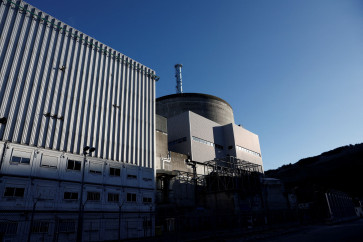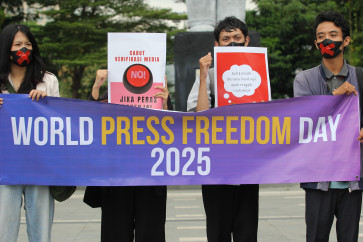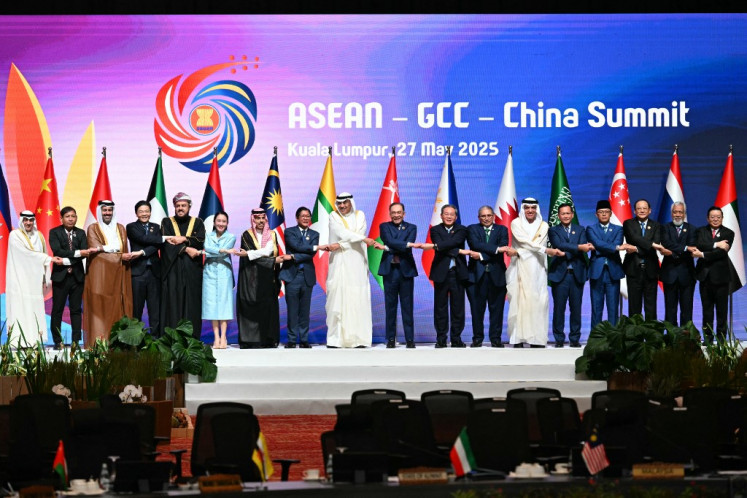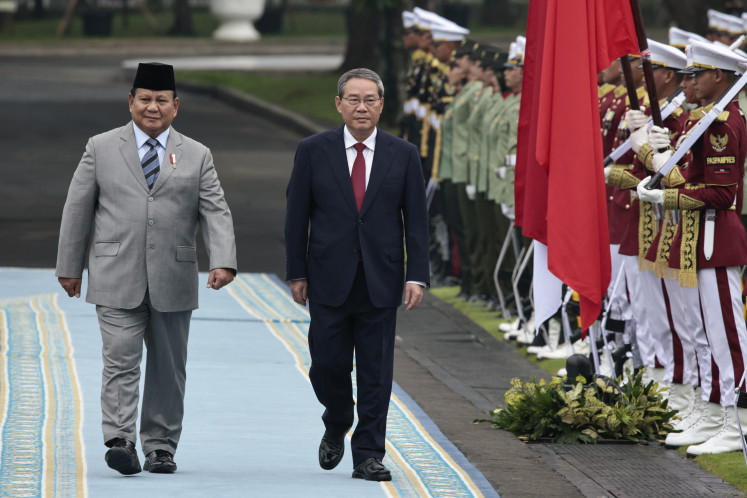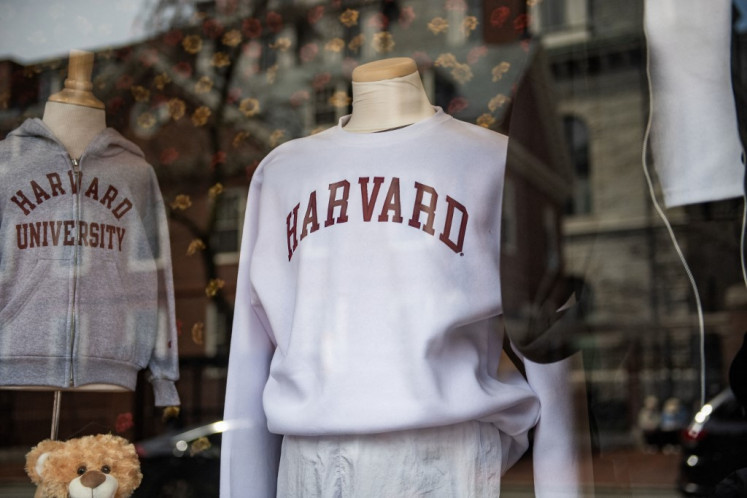Mercedes-Benz Indonesia to sell locally assembled trucks
Fresh line up: Industry Minister Airlangga Hartanto (left to right), Mercedes-Benz Indonesia chief executive officer (CEO) Guenter Haefele, Mercedes-Benz Distribution Indonesia president director and CEO Roelof Lamberts, head of operations of Mercedes-Benz India Private Limited Piyush Arora and Industry Ministry director general for metal industries, machines, transportation vehicles and electronics I Gusti Putu Suryawirawan pose together during the launch of the Mercedes-Benz New E Class on Tuesday in Wanaherang, Bogor, West Java
Change text size
Gift Premium Articles
to Anyone

F
span class="caption">Fresh line up: Industry Minister Airlangga Hartanto (left to right), Mercedes-Benz Indonesia chief executive officer (CEO) Guenter Haefele, Mercedes-Benz Distribution Indonesia president director and CEO Roelof Lamberts, head of operations of Mercedes-Benz India Private Limited Piyush Arora and Industry Ministry director general for metal industries, machines, transportation vehicles and electronics I Gusti Putu Suryawirawan pose together during the launch of the Mercedes-Benz New E Class on Tuesday in Wanaherang, Bogor, West Java. (JP/Bimo Raharjo)
The Indonesian unit of German automobile manufacturer Mercedes-Benz will sell locally assembled premium trucks in the first half as it looks to tap opportunities in infrastructure development.
The company will assemble the trucks at its current production facility in Wanaherang, West Java. Mercedes-Benz Distribution Indonesia president director Roelof Lamberts said the company was spending substantial funds to build a new production line for commercial vehicles.
“We are already investing in the commercial vehicle production line here at the Wanaherang plant,” he said during the launch of the locally assembled Mercedes-Benz E-Class at the plant on Tuesday.
Three models will be assembled locally: the 6.7-liter 227-horsepower (hp) 1623 C, the 275-hp 2528 RMC and the tractor head 3336 K, which has an 11.37-liter engine producing 348 hp.
The models were presented at the Indonesia Construction Expo in November and will be sold via commercial vehicle dealership points in Jakarta, Bandung in West Java, Surabaya in East Java and Medan in North Sumatra in the first half.
All of the trucks are designed for on-road travel and can be modified into dump trucks or cement mixers.
Mercedes-Benz Distribution Indonesia marketing communication deputy director Hari Arifianto said the company aimed to cater to road infrastructure projects, such as in Java, Sumatra and Papua, given that the government had increased its infrastructure budget by Rp 40 trillion (US$3 billion) to Rp 387 trillion in 2017 from 2016.
“The mining and commodity outlook is still bad, so we are aiming for construction and infrastructure projects,” he said.
The company expects the logistics business to improve once the infrastructure is established, opening up more opportunities for cargo truck and on-road truck sales.
I Gusti Putu Suryawirawan, director general of metal, machinery, transportation, equipment and electronic industries at the Industry Ministry, said Mercedes-Benz had committed €24 million ($25.78 million) to commercial vehicle investment this year.
So far, this is the only investment commitment for the commercial vehicle segment. Other manufacturers, such as Toyota and Mitsubishi, had topped up their investments in the passenger car segment.
The Wanaherang plant has an installed capacity of 6,000 vehicles per year, with a utilization rate of around 56 percent, as Mercedes-Benz currently produces only around 3,700 vehicles locally. The production of commercial vehicles is expected to increase the utilization rate.
In addition to Indonesia, Mercedes-Benz only has two other assembling factories for commercial vehicles in Asia, namely in Japan and India.
Mercedes-Benz Distribution Indonesia external affairs associate director Ary Tjahyono said this was the first time for Mercedes-Benz Indonesia to locally assemble commercial vehicles after selling Mercedes-Benz trucks in Indonesia since 1970. Other than trucks, it also sells bus chassis.
Daimler AG, Mercedes-Benz’s parent company, also produces trucks under other brands, such as Fuso, Freightliner and Western Star.
Fuso is available in the Indonesian market, but sold under the dealership of Krama Yudha Tiga Berlian, which holds the Mitsubishi brand in Indonesia. Daimler bought Fuso from Mitsubishi Group in 2011.
After the commodity boom ended in 2014, commercial vehicle sales began to decline. According to the latest data from the Association of Indonesian Automotive Manufacturers (Gaikindo), truck sales reached 60,082 units from January to November 2016, falling by 13.5 percent from the same period in 2015.
Gaikindo chairman Yohannes Nangoi said corporate customers were holding back on purchasing commercial vehicles due to low commodity prices.
Gaikindo hopes commercial vehicle sales will improve in 2017 as the prices of commodities like oil, nickel, copper and coal are already increasing.


